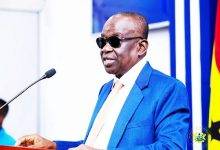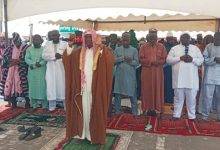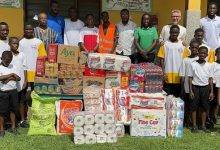
Government has been urged to increase the budgetary allocation of the Water, Sanitation and Hygiene (WASH) programme and related activities to ensure the achievement of its vision of universal access to safe drinking water.
In addition to that, to further ensure that it attained the Sustainable Development Goals (SDGs) Number Six (6) which would ensure universal access to safe drinking water and sanitation by 2025.
These came to light at a Learning and Sharing Forum on WASH Budget Tracking held in Accra yesterday.
The forum aimed at disseminating information contained in a report compiled from two different studies commissioned by Water Aid Ghana (WAG) with specific focus on the Bongo and Kassena Nankana West districts of the Upper East Region.
The report also looked at analysis of WASH expenditure aimed at documenting the performance of selected district assemblies in regards to WASH and if WASH was prioritised.
Presenting the report, a research consultant for WAG, Mr Nicholas Adamtey said, the national budgeted expenditure for WASH between the periods of 2014 to 2018 had been inconsistent and called for a reversal of the trend.
In 2014, he said the budgeted expenditure for the Ministry of Sanitation and Water Resources responsible for WASH was about 4.5 per cent of the total budgeted expenditure of the ministry.
“The sector’s share of total MDAs budgeted expenditure declined to 1.6 per cent in 2015 but this increased to 3.8 percent in 2016,” he added.
Mr Adamtey indicated that, the nominal allocation in 2017 declined by 16.4 per cent and further declined by 3.8 per cent in 2018.
In addition, he stated that, the continuous decline in budgeted expenditure to total MDAs expenditure and budgetary allocations for the periods of 2016 and 2018 respectively, suggested that some projects for the sector were not implemented.
“The target indicators for the achievement of the Sustainable Development Goals Number Six will, therefore, not likely be achieved if the government continued to reduce budgeted expenditure,” Mr Adamtey said.
According to him, donor funding for WASH at the national level was relatively high, saying “the development partner’s contribution to WASH activities was 76.8, 47.6 and 86.9 per cent for 2014, 2015 and 2016 respectively.’
“This means the sector is mainly funded by development partners, making it donor dependent and vulnerable as reductions in donor support can result in drastic decrease in the total budgeted expenditure,” he added.
In terms of sustainable funding of WASH at the national level, Mr Adamtey indicated that, it would be prudent for government to provide adequate funding for WASH, in order to achieve the SDGs and improve the livelihoods as donor funding was not reliable and sustainable.
Mr Vitus Adaboo Azeem, Co-research consultant for WAG explained that the two key agencies responsible for WASH at the regional level were the Community Water and Sanitation Agency (CWSA) and Environmental Health and Sanitation Directorate (EHSD).
According to him, to sustainably implement projects at the local government level, the district assemblies needed to increase their internally generated funds.
He indicated that whiles municipal assemblies have managed to exceed 10 per cent of their total budgets, the district assemblies have achieved less than four per cent with some even making less than one per cent.
BY ABEDUWAA LUCY APPIAH







